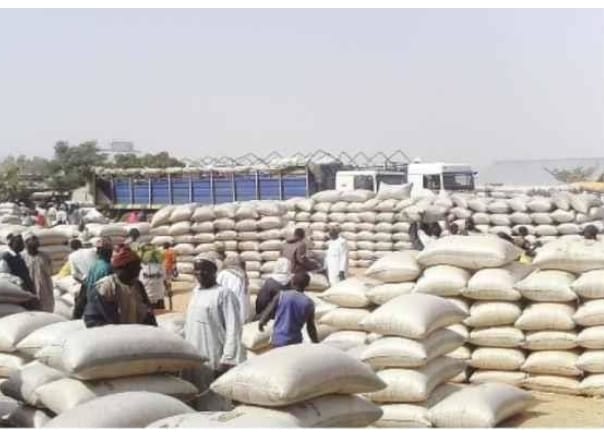The National Harmonized Traders Union of Nigeria has expressed mixed reactions to the Federal Government’s decision to grant tax exemptions on the importation of essential food items, including rice, maize, brown rice, cowpeas, and others.
The union acknowledged that this measure could serve as a short-term solution to alleviate current food shortages and mitigate the effects of hunger across the country. However, concerns were also raised about the long-term implications and effectiveness of this policy.
In a public statement, the President of the Union, Bature AbdulAziz, emphasized that the ongoing forex issues could negate the benefits of the import duty-free window. He explained that even without import duties, the high dollar exchange rate would keep the prices of imported rice and other commodities elevated, making them still unaffordable for the average Nigerian.
“For example, if one is importing rice from abroad, the dollar rate does not change. After importation, a bag of rice will arrive in Nigeria at over ₦60,000, and it will still be sold to the final consumer at around ₦70,000. Thus, the impact of this measure would be minimal,” AbdulAziz stated.
He further noted, “The price of commodities is highly unstable in Nigeria today, coupled with widespread financial difficulties among the public. While any move to provide relief to citizens is welcome, this should not be viewed as a permanent solution.”
This development follows the Federal Government’s announcement on Monday to suspend duties, tariffs, and taxes on certain essential food items imported through both land and sea borders, in an effort to combat the rising cost of living and food insecurity.
